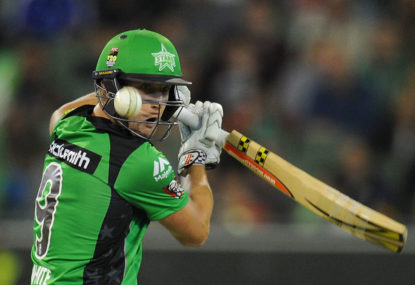The 1980s contained plenty of significant cultural events. Terrible haircuts. Michael Jackson. The assassination of John Lennon and the peace movement. The eradication of smallpox.
It also had the founding of the Slow Food movement by Carlo Petrini in reaction to the McDonaldification of Rome.
Since that time, Slow Food has gained plenty of attention and devotees for its ambitious and well-intentioned principles, with Australia’s own Maggie Beer, the matriarch of Australian cuisine, bringing the goodness to Australia in 1995.
Since then, the Slow movement has taken off in all sorts of fields. There’s now Slow Beer (it is delicious!), Slow Church, Slow Media, Slow Science, Slow Travel and even Slow Parenting.
The principles of the original Slow Food movement were interesting for many who had lamented the demise of their traditional food culture, and were things that I believe many people also think about and resonate with when it comes to sport.
Some of the distilled principles of the Slow Food movement are things like the preservation of local traditions and customs, a focus on the sustainable production of ingredients, and an effort to preserve heirloom and other varieties, stripping things back to smaller scale, and encouraging ethical purchases, treatment of ingredients and organic approaches to farming.
All of this was in reaction to the fast food movement, which was and still is gripping the world. Head to Vietnam, and you’ll find a KFC. In the middle of Paris? You’ll probably find as many Maccy D’s as boulangeries.
The whole Slow Food movement was triggered by the opening of a fast food restaurant in Rome. Fast food had gone too far.
So we come to fast sport.
Twenty20 cricket. Rugby Sevens. Auckland Nines. You could argue that American-style all-star fixtures fit under this umbrella. And the latest addition to the fast sport calendar, bearing the name of the movement, Fast4 Tennis.
None of these things have bad aims. They all aim to spread the love and joy of their sport to a wider audience. They are almost always marketed as a ‘family friendly’ alternative to the original version of the sport.
They are also adding to the cultural fabric of the sport as well as their shortened form allows them to. But the trappings of fast food are evident in T20 cricket, as well as rugby sevens and Fast4 Tennis.
Essentially meaningless teams and contests (BBL, IPL, Fast4) meet over a short game and tournament duration. It strips back the more mental elements of the game to focus purely on the physical. There are more roars from the crowd in a shorter space of time. There are less intense mental battles for superiority. Or if there are just as many, they are fought over a shorter period, placing the emphasis on big moments rather than temperament and enduring skill.
It’s not about the ethical treatment of the contest, but about celebrating the physical accomplishments of the athletes. And it’s starting to sound a little more like fast food.
The best bit about all of it is the money that these tournaments create important revenue for the sports, that can ideally be funnelled back into the grassroots of the sport, or help prop up the more foundational but less popular tournaments being played out by professionals.
Events might be gratuitous and generally monotonous wherever they’re played in the world, but it brings people through the gates, and gets them buying burgers.
You could argue, in some ways, that the fast sport movement in Australia begin in 1971, with the first limited overs cricket international. We embraced the new format so much that World Series Cricket was created in 1977 to satiate the appetite for the new form.
But you could also say that World Series Cricket created a brand new tradition in the cricketing world, one that should be celebrated rather than lamented as the downfall of cricket.
Was it Twenty20 cricket? If you look at the Big Bash League and IPL crowd and television figures, and the subsequent revenue they must be creating, you would probably suggest that T20 is the McDonald’s of the fast sport movement.
Fast4 tennis is the new player, which doesn’t yet look to have found its place in the market.
My question is: when does fast sport take over from the Slow?
The point of fast food is to fill a hole. But its producers tell us that it’s a sometimes food, only to be enjoyed as part of a healthy diet.
Is is the same with sport? Can sporting snobs, connoisseurs and hardcore fans come together and enjoy the traditional contest steeped in history without fear of having the fast shoved in their face? Or in the days of shorter attention spans and Generation Y, is fast sport destined to become as ubiquitous and easily accessible around the world as McDonald’s or KFC?
Like finding a restaurant that doesn’t serve pizza in the heart of Bratislava, are we destined to a future of continual degradation of traditional sporting values?
Or will the rise stop, the obsession with shortening and culling cease, and the celebration of Test cricket, Grand Slam tennis and the celebration of the long game recommence?
It hasn’t reached panic stations yet. The IPL is not yet a 38-week EPL-esque marathon. The BBL is bringing people to the game of cricket, and Test cricket is still loved by most who consider themselves cricket fans.
Whether Sevens will ever truly take off with its Olympic inception is yet to be seen, and Fast4 just seems unnecessary.
But sport must be consumed in a balanced fashion. Too many quarter pounders, and you know what happens. Too many maximums, and I think we’re not doing ourselves any favours as sports fans.





























































































